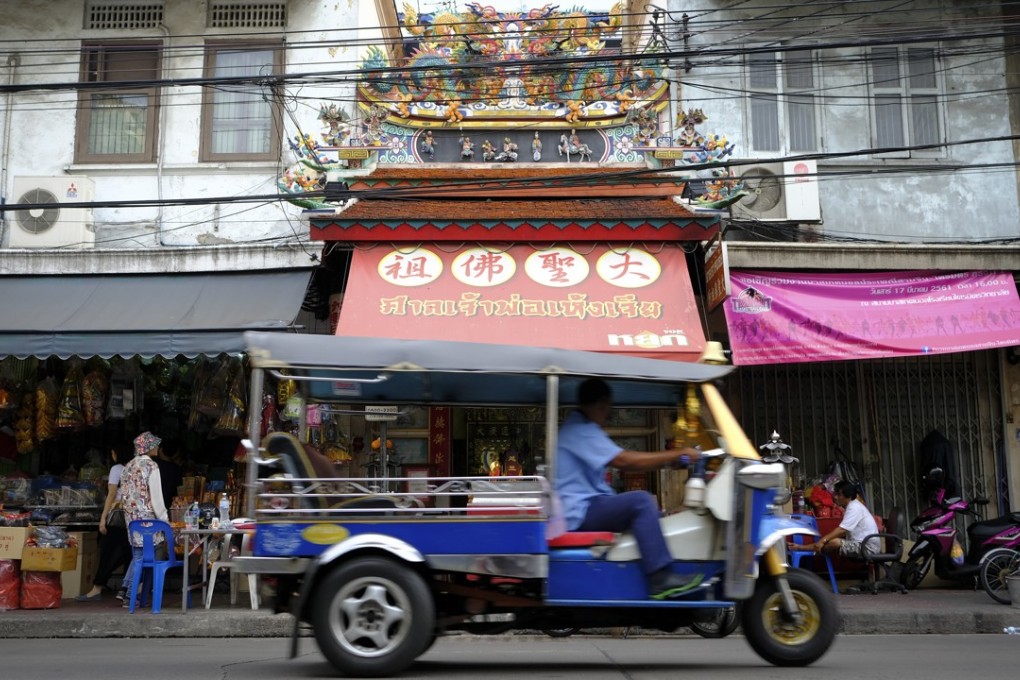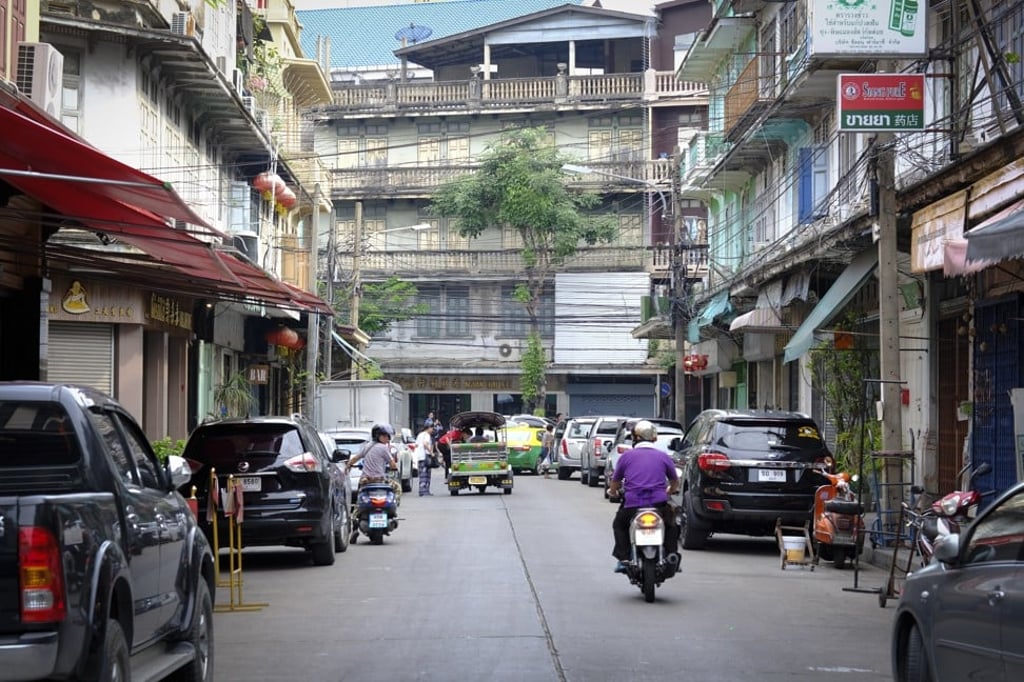Bangkok’s Chinatown braces for gentrification now subway station is about to open
Most Sino-Thai clans quit Sampheng, a warren of narrow lanes, years ago, but few sold their properties, and its patchwork of ownership may save the historic neighbourhood from mass development – though change will inevitably come

Suwilai Boonthawatchai, 63, was born and raised in Sampheng, the narrow street that for two centuries defined the commercial heart of Bangkok, known today as Chinatown.
“At night we could walk to the street food stalls wearing our pyjamas,” Suwilai recalls of her childhood in the area. “It was comfortable and safe. There were no thieves at all at that time.”
Grab coffee and a coffin at this Bangkok ‘death cafe’
Things started to change in the old neighbourhood in the early 1990s, when Thailand’s economy was booming and every household could suddenly afford a car. But there was no place to park in Sampheng, a warren of narrow lanes, wholesale and retail outlets, and crowded pavements. The ethnic Chinese residents started to move out to condominiums or the suburbs.
The Boothawatchai family finally relocated 10 years ago, buying a house in a Bangkok suburb but keeping their Sampheng property as an office for their business – selling imported sewing machines and spare parts.
“Because everyone else had moved, at night it was dangerous here … so many robberies. It forced us to leave,” says Suwilai, who like most Thais of Chinese descent is Chiu Chow, the dominant dialect group on the eastern coast of Guangdong province, in southern China.

The Boonthawatchai clan’s Sampheng experience is typical of Bangkok-based Sino-Thai families. Many of the city’s most powerful business clans, such as the Chearavanonts of the Charoen Pokphand Group and Sirivadhanabhakdis of the TCC Group, started out as traders in Sampheng and moved out as their commercial empires expanded, but most still hold on to their original family compounds out of a sense of pride and in keeping with the Chinese belief that it would be unlucky to sell the place where your good fortunes began.